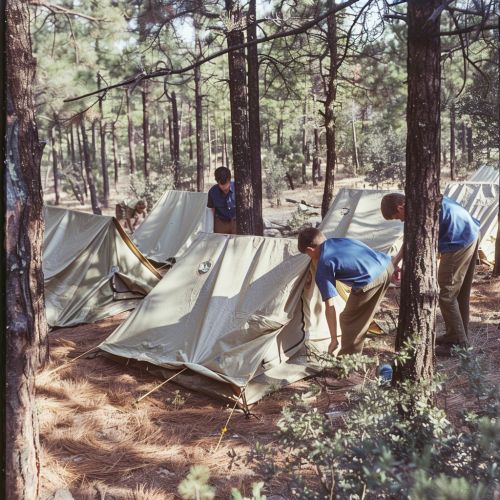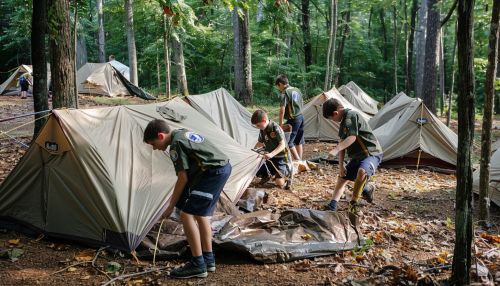Boy Scouts
History
The Boy Scouts movement was founded by Robert Baden-Powell in 1907 in the United Kingdom. Baden-Powell, a lieutenant general in the British Army, was inspired by his experiences in the military and his desire to instill values of self-reliance, outdoor skills, and citizenship in young boys. The first experimental camp was held on Brownsea Island in England, which laid the foundation for the Scouting movement.
The movement quickly spread internationally, with the establishment of the Boy Scouts of America (BSA) in 1910 by William D. Boyce. The BSA was influenced by Baden-Powell's principles but adapted to American culture and needs. By 1920, the first World Scout Jamboree was held in London, further cementing the global nature of the movement.
Principles and Methods
The Boy Scouts movement is guided by several core principles, often encapsulated in the Scout Promise and Scout Law. These principles emphasize duty to God and country, helping others, and maintaining personal integrity. The Scout Law includes traits such as trustworthiness, loyalty, helpfulness, friendliness, and bravery.
The Scouting Method is a system of progressive self-education through:
- A promise and law
- Learning by doing
- Membership in small groups (patrol system)
- Progressive and stimulating programs
- Outdoor activities
Organizational Structure
The Boy Scouts organization is typically divided into several age-based sections, each with its own program and activities. These sections often include:
- Cub Scouts: For younger boys, focusing on basic skills and fun activities.
- Scouts: The core program for boys aged 11-17, emphasizing outdoor skills, leadership, and community service.
- Venture Scouts: For older teenagers and young adults, focusing on advanced skills and leadership.
Each section is further divided into smaller units such as patrols or dens, which are led by youth leaders under the guidance of adult volunteers.
Activities and Programs
Boy Scouts engage in a wide range of activities designed to develop various skills and values. These activities include:
- Camping: Emphasizing outdoor skills, self-reliance, and teamwork.
- Hiking: Promoting physical fitness and exploration of nature.
- Community Service: Encouraging civic responsibility and helping others.
- Merit Badges: Offering opportunities to learn about specific subjects, from first aid to environmental science.
The Eagle Scout rank is the highest achievement in the Boy Scouts of America, requiring the completion of numerous merit badges and a significant community service project.
Global Impact
The Boy Scouts movement has had a profound impact on youth development worldwide. It is estimated that over 50 million people have participated in Scouting since its inception. The World Organization of the Scout Movement (WOSM) coordinates international Scouting activities and promotes the movement's principles globally.
Challenges and Controversies
The Boy Scouts have faced various challenges and controversies over the years. Issues such as inclusivity, gender integration, and leadership scandals have prompted significant changes within the organization. In recent years, the BSA has opened its programs to girls and has made efforts to be more inclusive of different backgrounds and orientations.
See Also


